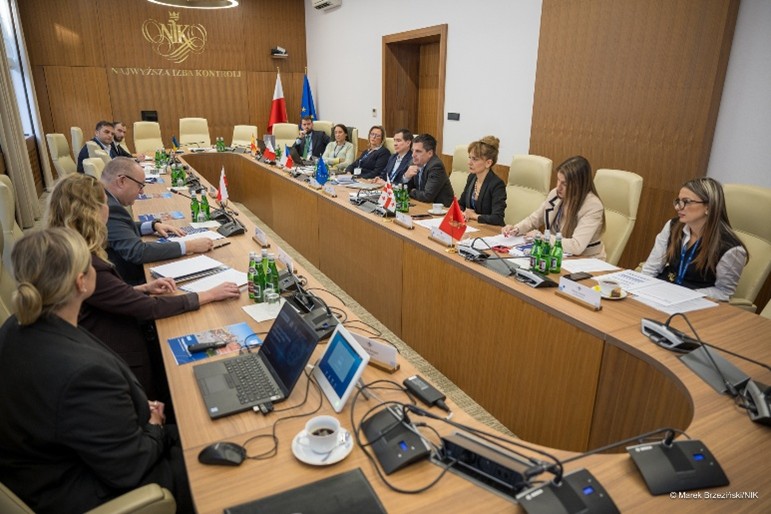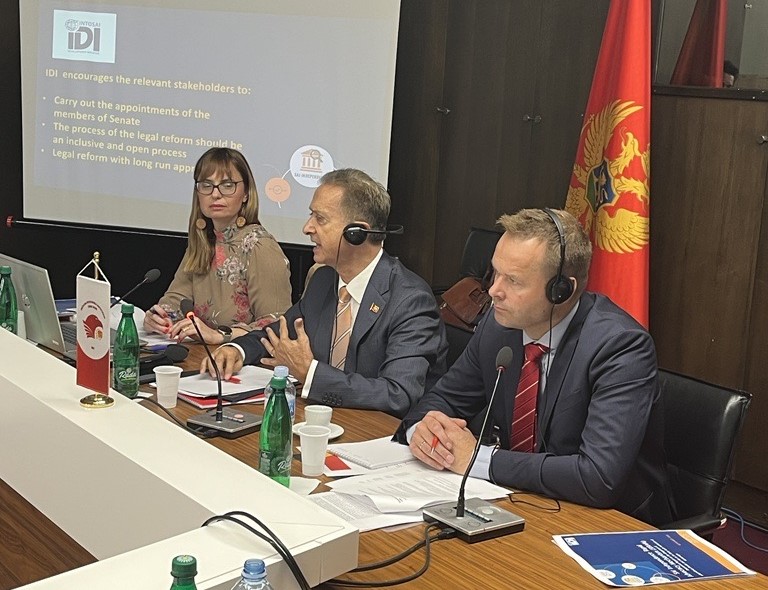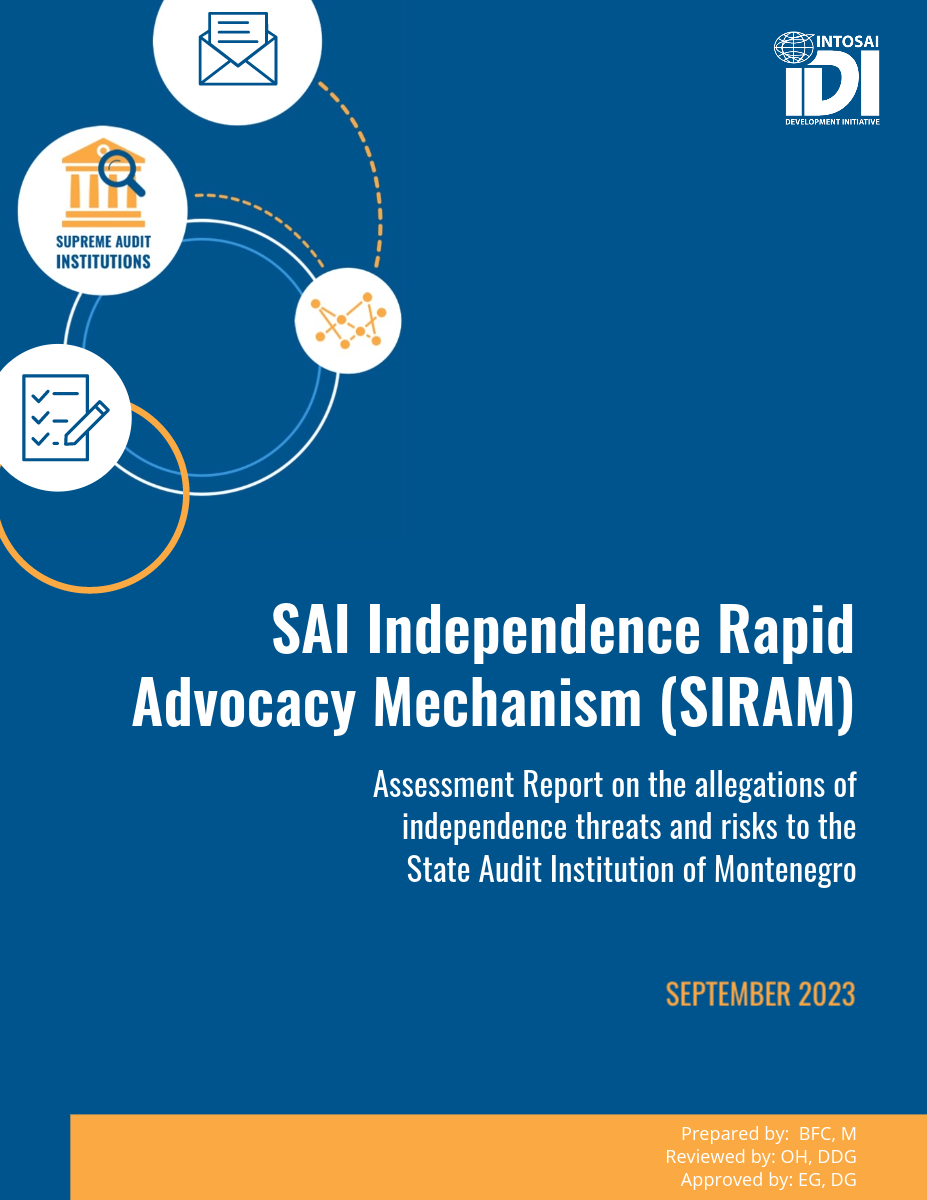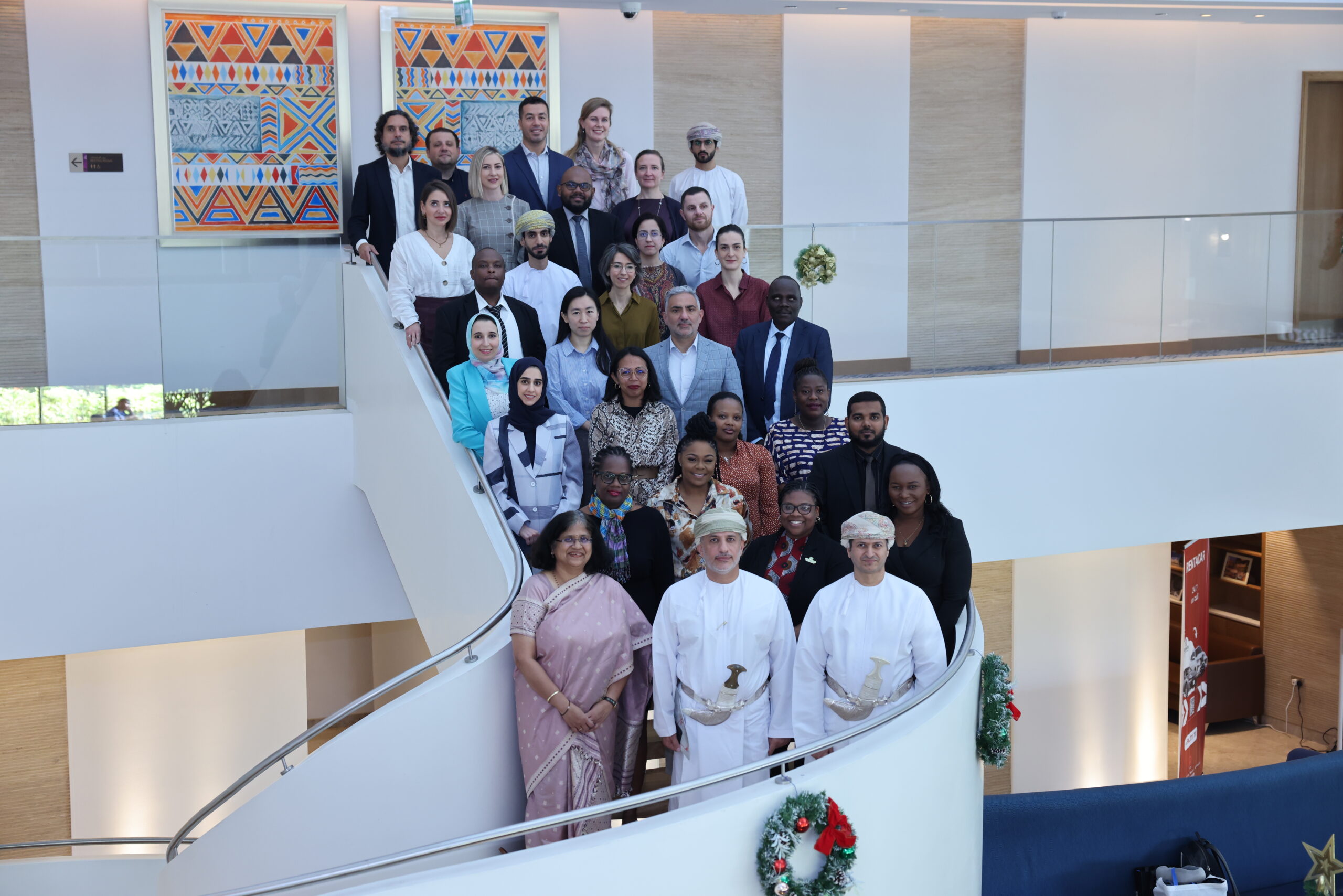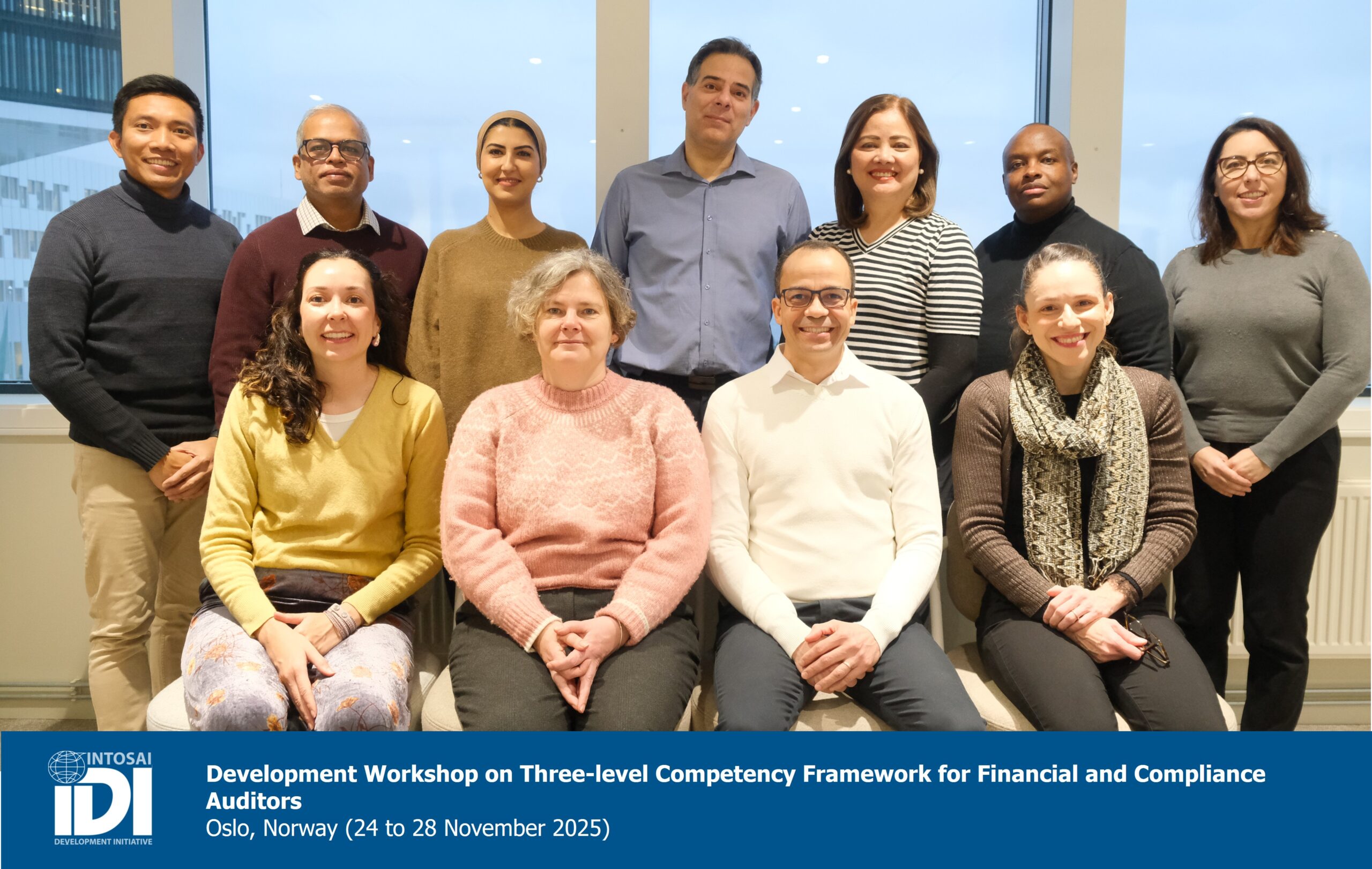Read the findings and full report
Supreme Audit Institutions (SAIs) play a key role in leading effective governance and accountability practices, especially by providing oversight, transparency and government accountability. But when hindered from fulfilling an institutional mandate, how can we ensure SAIs’ autonomy and effectiveness? With the launch of INTOSAI Development Initiative’s newest publication, SAI Independence Rapid Advocacy Assessment Report on allegations of independence threats and risks to the State Audit Institution of Montenegro, the report aims to impart expert findings and actionable recommendations regarding the protection and enhancement of institutional governance within the case presented.
Built on the principles of the Lima and Mexico Declarations, the SIRAM Report produced for the State Audit Institution of Montenegro addresses various pillars of SAI independence – which is a vital dimension of good governance and accountability in the public sector. Specifically, using SIRAM’s unique methodology and assessment process to evaluate the case, the compiled evidence is summarised by these findings:
- In relation to the delay in the appointments Principle 2 of the Mexico Declaration has been infringed.
- The current Law on the State Audit Institution establishes conditions in the appointments for the members of the Senate in line with principle 2 of the Mexico Declaration. However, in practice, the lack of appointments by the Parliament breaches de facto such conditions.
- Additionally, IDI considers that delays appointments inhibits the fulfilment of Principle 3 of the Mexico Declaration, which points out that SAIs must be free from interference from the Legislature in the conduct of audits and the organisation of their office.
- Regarding the reform on the law on the State Audit Office
- IDI considers that the potential reform of the Audit Law does not represent an infringement to the Mexico Declaration Principles. In addition, at the time of preparing this report, there was no bill or proposal which enables IDI to identify the real scope and content of the reform and its alignment to the Mexico Declaration principles.
- However, IDI considers that the eventual discussion process of the potential Audit Law reform needs to be monitored. The new provisions in the Audit Law should be aligned to the Mexico Declaration principle 2 in terms of the tenure, appointment, removal, retirement, and immunity for both the current and the eventual new members of the Senate.
Conclusions
As a resource, the report provides several actionable steps and recommendations based on the evidence gathered during the SIRAM assessment conducted in Montenegro. Recommendations covered a broad array of topics relevant for both the INTOSAI community, parliamentarians and the Executive, as well as other external stakeholders in the accountability ecosystem. Namely, that the potential reform of the Audit Law be an inclusive and open process with the participation of the current members of the SAI’s Senate and other relevant stakeholders such as CSOs. Further policy and advocacy actions suggested ensuring that SAIs have necessary resources in accordance with existing good practices in the INTOSAI community in line with Mexico Declaration principles, as well as promoting advocacy and fostering support for SAIs’ independence at the global level.
The latest SIRAM Report on the independence risks and challenges faced by the State Audit Institution of Montenegro examines efforts to inhibit transparency, accountability, and governance. By addressing SAI independence challenges and offering recommendations, the report aims to strengthen international democracy and global governance work.
Click here to access and read the full SIRAM Report and stay tuned for insights and updates regarding ongoing SIRAM processes.
